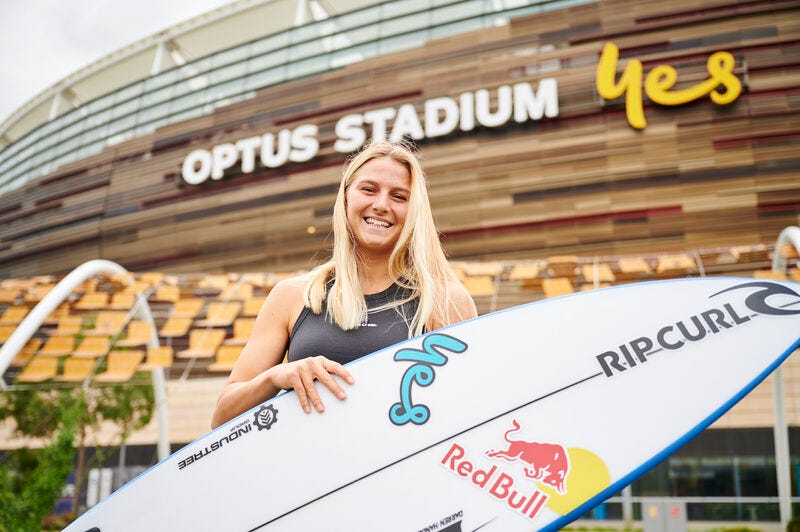Sport partnerships as a useful tool for brand revival, and a shield from community outrage
Features recent case studies from Optus and Commonwealth Bank
Not a subscriber yet? Join other sports marketing industry professionals receiving unique insights and in-depth analysis that you won't find anywhere else.
Businesses, like humans, make mistakes.
Employee misconduct, pollution, cyber security, product recalls, corruption, etc. there are many events and circumstances where business behavior impacts the customer’s and public’s perception of a brand, which can ultimately have a negative impact on sales and the overall health of the business.
When a brand crisis occurs, an immediate corporate response is often required e.g. company apology. Following this, it then becomes the marketing department’s role to ensure that the negative impacts on the brand are reversed, and that the brand is rebuilt as efficiently as possible.
Sports partnerships are an effective way to revive, and shield your brand from negative public perceptions
Most marketing activity can play a role in brand building. Sponsorship is one of the more-effective methods, and for most established brands who already have high awareness levels, its sweet-spot is the mid-funnel, around the consideration and preference zone.
By aligning your brand to a team, league, athlete or an event of cultural significance, a transfer of brand equity takes place, where the love that people feel towards one brand (e.g. rights-holder) is transferred to the other (sponsor).
Sports partnerships can also help change the media narrative - by consistently having your brand associated with a topical sport (as opposed to an negative issue) that generates positive emotions, captures public attention and dominates news headlines, a brand can become remembered and viewed in a much more positive light.
Optus’ brand crisis
In late 2022, 10 million current and former Optus customers had their data stolen in a cyberattack. Naturally, sales took a massive hit and Optus were consistently featured in the news for the wrong reasons - their immediate response was to say sorry.
Post their apology campaign, Optus then created and executed a brand recovery plan that was largely built around sport.
Whether the timing was intentional or not, Optus partnered with “One of Australia’s favourite sporting events” in March 2023, the Formula 1 Rolex Australian Grand Prix. This partnership provided Optus with branding, engagement opportunities and enabled them to surprise and delight customers around the track.
During this period, they also took advantage of their high-profile ambassador partnership with their “Chief of Optimism”, Daniel Ricciardo.
The below stunt that featured on the Fitzy & Wippa with Kate shoe below has been viewed 4m+ times on Instagram.
Not long after the F1 Grand Prix was over, Optus then entered into a new ambassador partnership with 20-year-old Australian surfing sensation, Molly Picklum, whilst the World Surf League toured Australia.
More recently, Optus has been heavily involved in the FIFA Women’s World Cup as the official broadcaster, and has publicly viewed this historic cultural moment as another opportunity to revive it’s brand.
Optus are far from the only Australian blue-chip brand who’ve realised the usefulness of sports partnerships during testing circumstances…
Commonwealth Bank recently faced community outrage following their record profit, and CEO-pay announcement
Commonwealth Bank has faced backlash after announcing its largest ever profit of $10.2 billion, and CEO Matt Comyn receiving an eye-watering $10.4 million pay packet ($8 million in bonuses). This announcement came during a period where Australians have been facing intense cost of living pressures and are “drowning under the weight of a dozen rate hikes”. As a result, segments of customers, staff and the public were triggered to become furious.
It could’ve been worse…
Although it may have been slightly unplanned, the Commonwealth Bank brand has benefited greatly at a pivotal time from their strong association with the “Commbank Matildas” and the FIFA Women’s World Cup, which have both gripped the nation, and have somewhat offset the negative headlines.
In 2021, Commonwealth Bank became the official naming rights partner of the Matildas with a four-year commitment - This naming rights entitlement has provided a platform for the CommBank brand to be featured heavily alongside one of Australia’s most loved teams (4th pre-tournament, likely higher now) and pop up positively in places that they otherwise wouldn’t be able to, switching the public narrative around their brand.
Recognising the huge potential of the FIFA Women’s World Cup early, (and thanks to large profits) they went a step further at the end of 2022, and became the Official Bank sponsor of the tournament.
Since then, and perhaps as a result of having the foresight into the backlash they were going to receive, CommBank has ensured that they’ve fully maximised the leverage of their women’s football partnerships to position their brand in a positive light, and successfully withstand the negative public commentary around their recent financial results.
Like what you’ve read and not yet a subscriber? Join other sports marketing industry professionals receiving unique insights and in-depth analysis that you won't find anywhere else!










